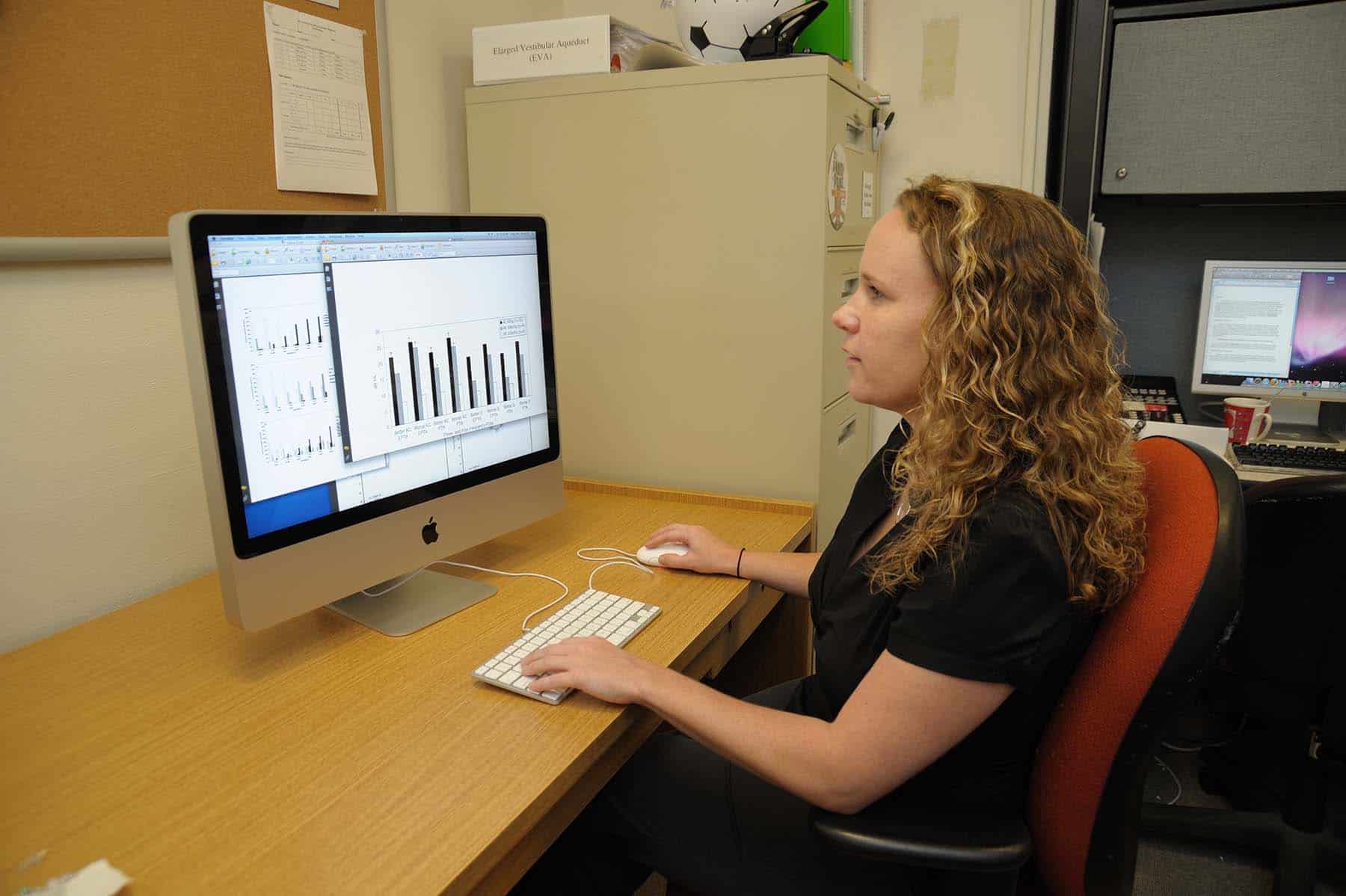AuD
This is the terminal degree for individuals who are interested in working in a clinical setting. Most programs are four years with a large emphasis on clinical exposure. After three years of in-house coursework and clinical internship experience, students complete a year-long full-time clinical externship. At the completion of this degree, graduates are able to apply for state licensure to practice audiology and work in clinical settings, such as private practice, hospital, or for hearing aid manufacturers. Some individuals who earn an AuD have strong interest in pursuing research, which is an available option to some extent. These opportunities arise within labs where the primary investigators hold PhDs and the AuD-holder is considered a “Research Audiologist.”

PhD
This degree is common across several fields and prepares individuals for careers in research, academia and/or industry. The length of these programs vary depending on school, advisor and other student factors, but takes at least four years (on average). Most PhD programs do not provide clinical experience for students, as the emphasis is on research: experimental methodology, statistical techniques and expanding the knowledge base. Students gain experience through work in research labs, teaching assistantships (TA), presentations and collaborations with other researchers.
AuD / PhD
Joint AuD/PhD programs are intended for those who are just entering the field and are interested in clinically-oriented research. The scope of these programs typically includes both clinical experience as well as research methodology. AuD/PhD degree holders are particularly well suited for jobs in academia, as their clinical training allows them to teach and supervise students in a clinical AuD program, while also running a productive research lab.

Joint degree programs offer some advantages over achieving each degree separately. The coursework for the two degrees often overlaps, which allows certain courses to serve “double duty,” fulfilling requirements for both degrees. Joint program students will typically complete both degrees in a fewer number of years than those who complete separate AuD and PhD programs (successive degrees).
Resources

Doctoral Programs

2019 - 2020 AuD / PhD Survey of Experiences

Applying to Audiology Graduate School

AuD / PhD Guide


